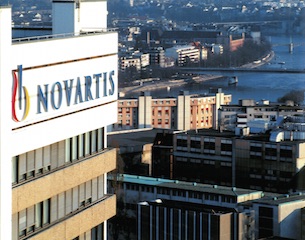
Employee Benefits Live 2015: Novartis Oncology is using its approach to total reward to support its transition from a highly performance-driven culture to a more collaborative environment.
Speaking at Employee Benefits Live 2015, in a session titled ’Developng an effective total reward strategy, Marie-Noelle Gagnon, human resources business partner at Novartis Oncology, explained that the organisation’s total reward approach will play a role in this shift by helping to recognise the values and behaviours that form part of this new cultural emphasis.
She added that an effective total reward strategy forms the key connection between a business and its employees and vice versa.
Gagnon said: “With every single challenge comes opportunity. We have a lot of challenges, which means we have a lot of opportunities. And opportunities reside in [a] total reward strategy.”
She added that pay often only serves as a short-term solution to employee retention, whereas the emotional connection that an effective total reward strategy can help to build creates a long-term approach to managing the recruitment and retention of top talent.
Novartis Oncology’s total reward approach encompasses a range of initiatives that aim to foster an emotional connection between employees and employer and help the organisation to attract and retain talented employees.
This includes an extended leave programme, which enables employees to take a period of paid leave to pursue philanthropic, professional or personal interests.
The oncology specialist also runs an annual ‘One life’ initiative to encourage a positive work-life balance and establish Novartis Oncology as a premier place to work. Under this scheme, employees in each country come up with an idea to help the organisation achieve this aim. Details of these initiatives are subsequently published in a report in order to share best practice across the business and its international locations.
In the UK, career development and interview skills workshops were set up for employees’ children, while coaching sessions and toolkits were provided to new parents under a programme named ‘New life in our life’ in Italy.
Gagnon said: “The total reward strategy will be the connector between the business and [employees], and [employees] and the business so you have to make sure that it’s right.”
This means ensuring the basics are in place and that they are effective, and then considering implementing initiatives that are meaningful for staff.
She added: “The reward programme will dictate the culture so it’s really important that [employers] take the time to review their total reward strategy.”
Core building blocks for a custom-built design
Meanwhile, Clive Wright, director at Hyperion HR and visiting professor at London Metropolitan University, who spoke alongside Gagnon during the conference session, explained that a total reward approach should include both traditional compensation and benefits as well as non-traditional rewards.
The traditional, extrinsic elements comprise financial rewards and benefits package offered to an employee, while the non-traditional, intrinsic elements include learning and development and the quality of the working environment.
Wright said: “[Total reward is] anything that’s going to engage the employee with the employer, anything that is going to motivate [staff] and get them interested in the organisation and doing good work for the organisation.”
According to Wright, there is no average employee to serve as a model for a total reward programme, but rather groups and sub-groups of employees that this should be tailored to. Extrinsic and intrinsic elements should serve as the core building blocks for a total reward programme but the overall design should differ according to the differing needs of employees.
He added that employers should ensure that intrinsic rewards, such as recognition, personal growth and a sense of involvement and belonging, are on the total reward agenda.
Intrinsic rewards are also an effective way of increasing engagement and productivity at little cost. “Effective employee recognition is the cheapest and most effective motivator in any organisation’s toolkit,” he said.